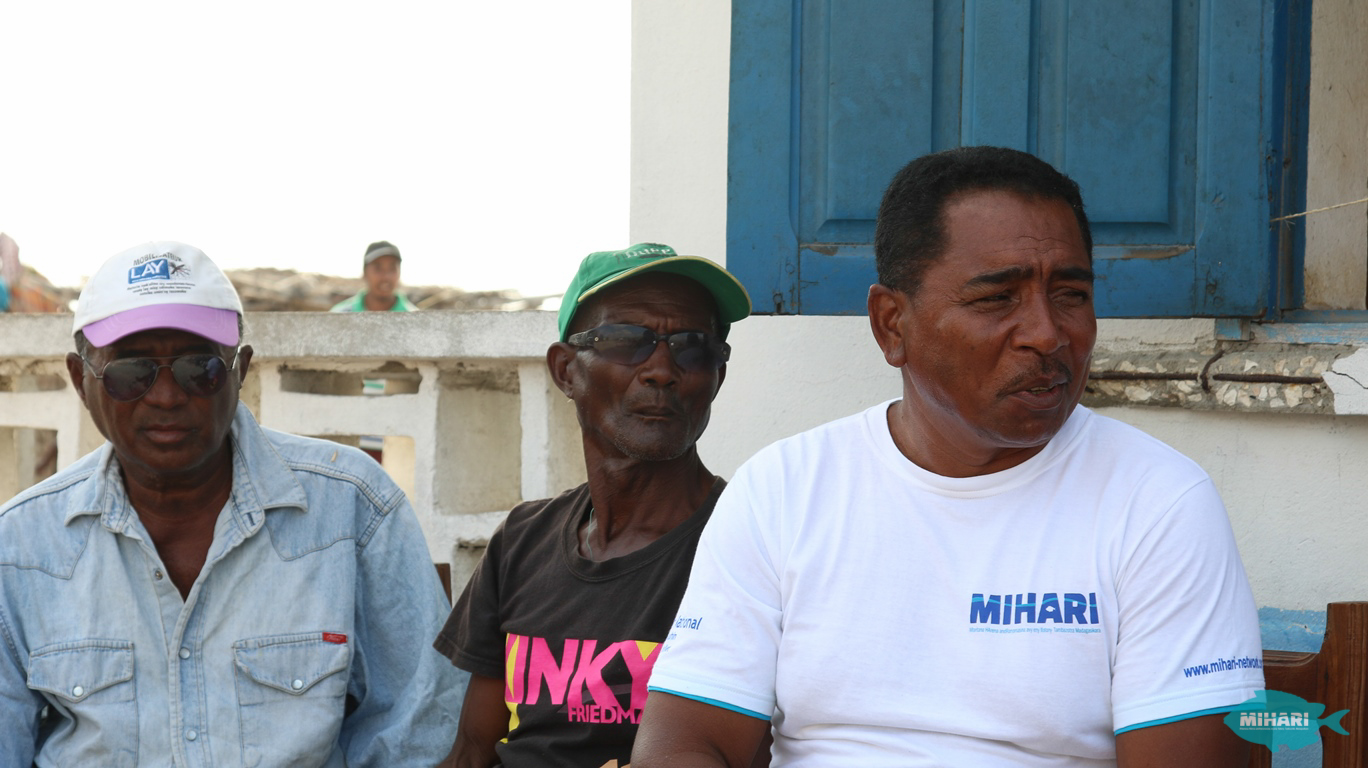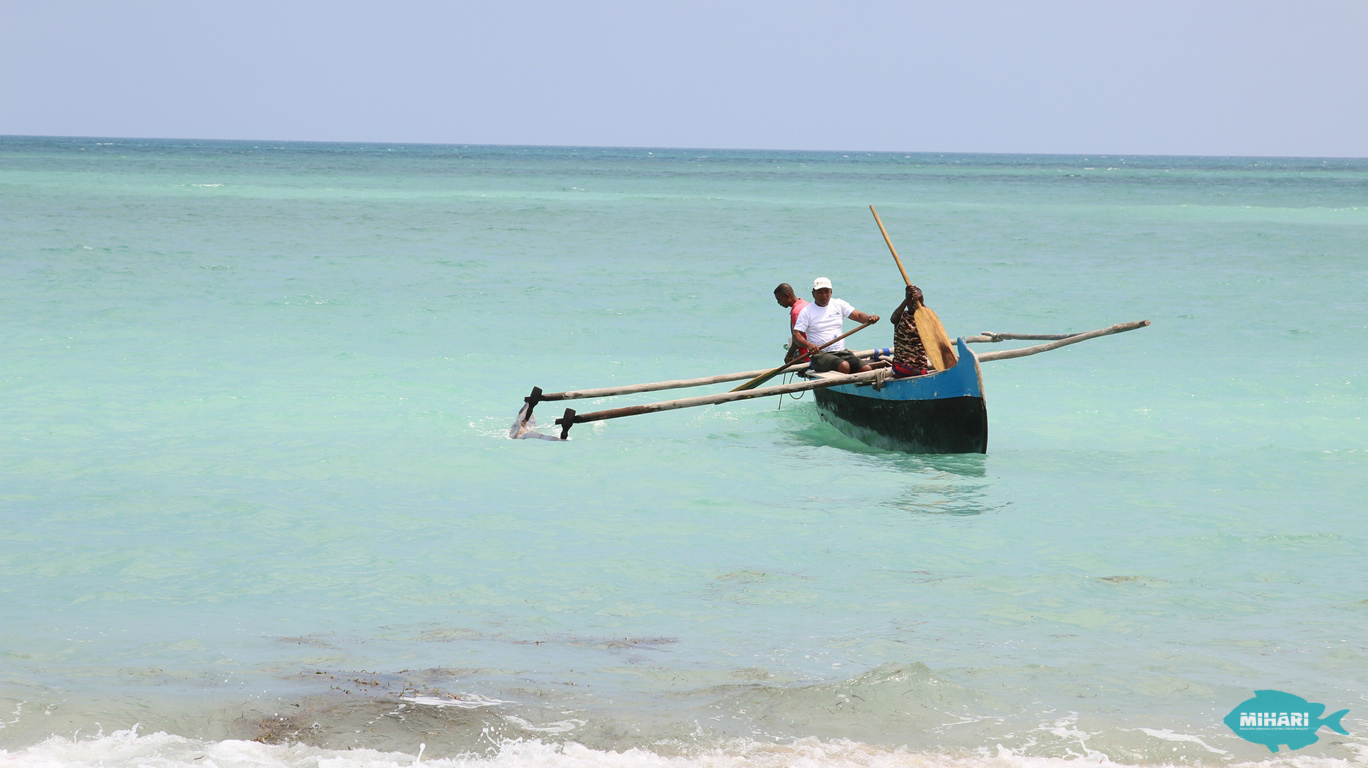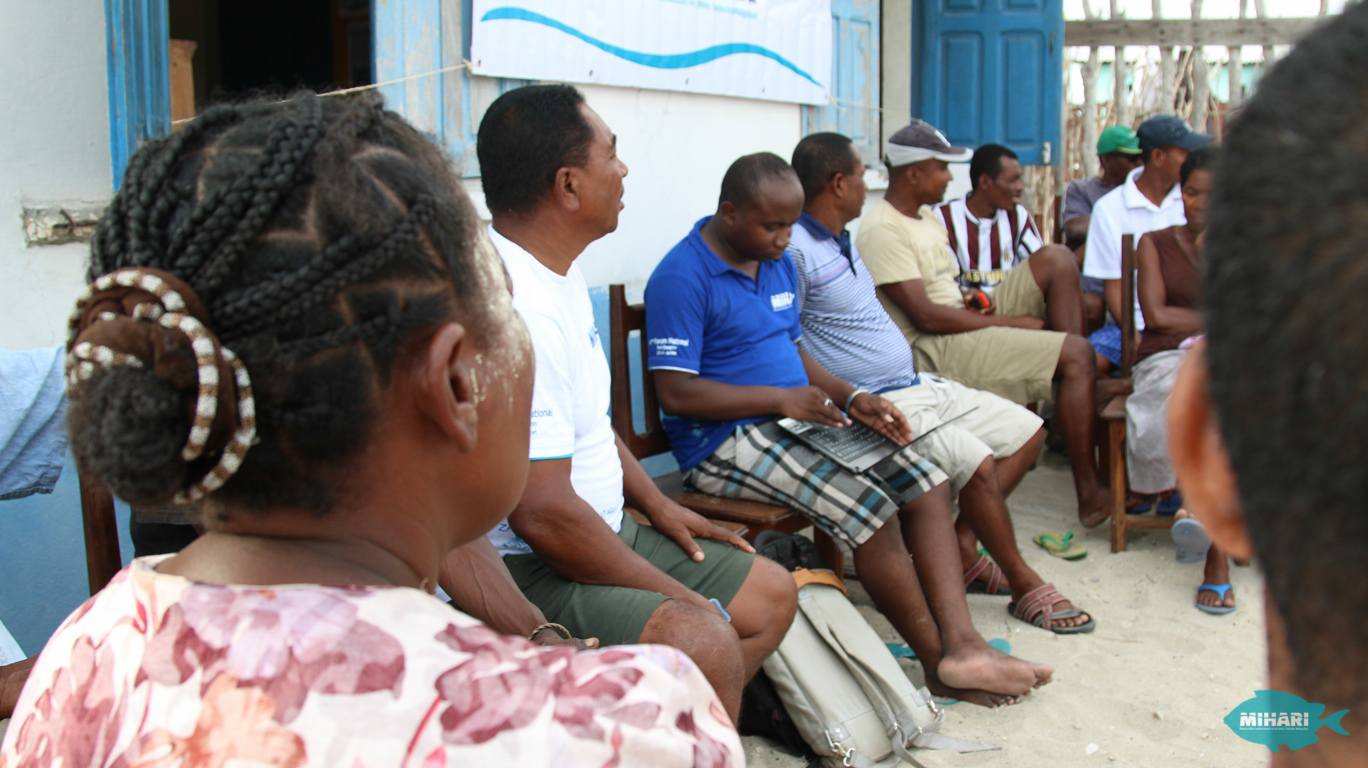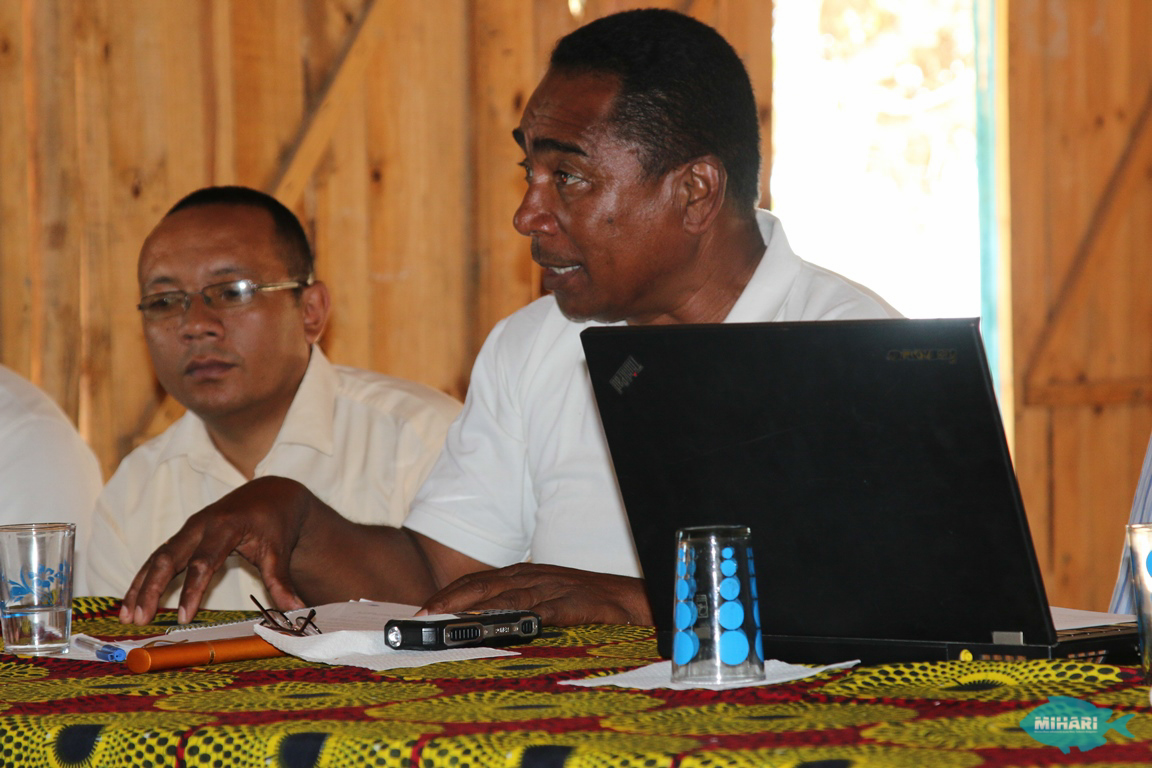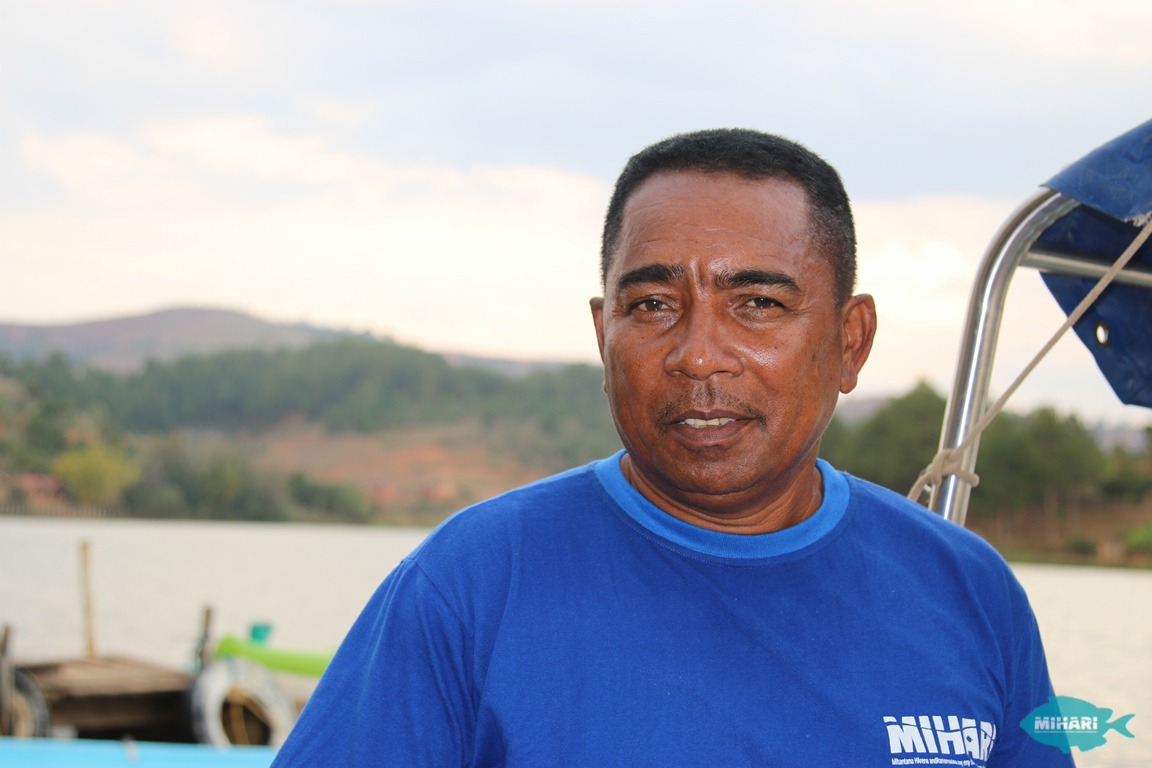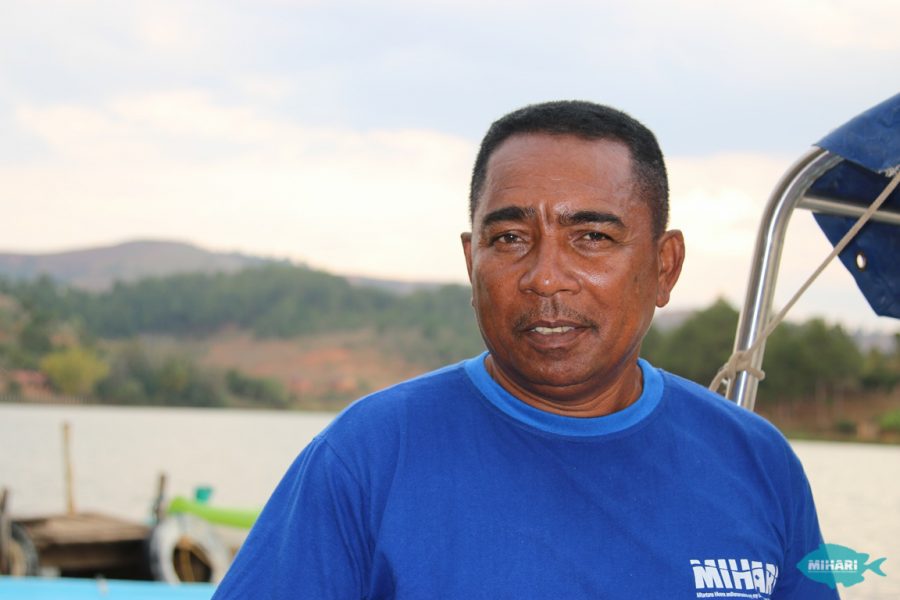And what do you do to personally (or as a community) contribute to changing this in a positive way?
I strongly believe in the benefits of working together to protect our marine resources, and MIHARI helps us learn from each other and make decisions together. Having been president of the FIMIMANO LMMA for ten years, I wanted to help increase the effectiveness of LMMAs beyond my home region, so I ran successfully for president of the MIHARI Network in 2017. As the president of the MIHARI Network, I can communicate with regional and national authorities on behalf of Madagascar’s LMMAs. It will hopefully be far easier now for me to help ideas turn into actions, to advocate for change at a national level, and I will strive to develop the MIHARI Network and address the issues affecting fishing communities around the country.
One of the activities we do within the FIMIMANO LMMA is educating fishermen on why not to use destructive fishing techniques such as poisonous latex from the laro tree. This kind of fishing is causing the death of numerous fishes and other organisms in the ocean, and is completely unsustainable. It will be tricky to abolish destructive fishing practices with training and education alone, but hopefully we will witness fewer fishers in our community using these techniques. I think that the destructive fishing mostly comes from people who were not originally fishermen but have decided to start fishing because they cannot find work elsewhere. They don’t know the ocean, or the reasons why these practices are wrong.
17% of Madagascar’s seas are now under local management thanks to the growing LMMA movement, but we keep going. I know many challenges await the MIHARI Network, but I firmly believe that by working together, Madagascar’s small-scale fisheries can become sustainable.
